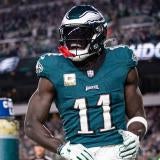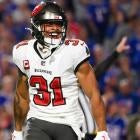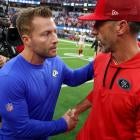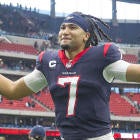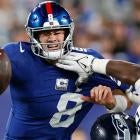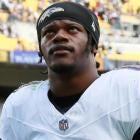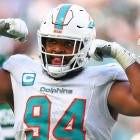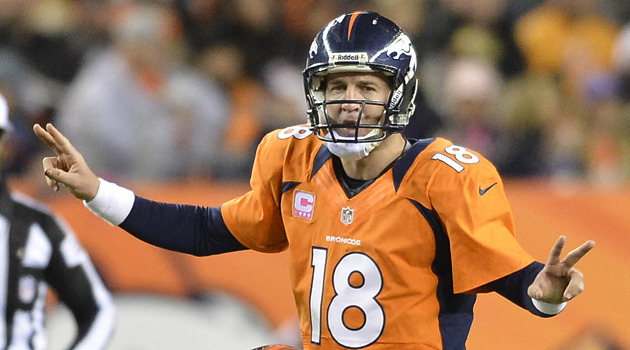 |
| The Broncos' records that Peyton Manning is breaking don't mean as much when you consider the era. (US Presswire) |
When John Elway threw for a career-best 4,030 yards in 1993, it seemed he'd established a Broncos record that might endure for decades.
Elway had never thrown for 4,000 yards or more in a single season before -- and he never would again. Before 1993, only 21 4,000-yard seasons were posted, and even though the frequency accelerated slightly through the 1990s and into the early 2000s, it was rare for more than two NFL quarterbacks to break that milestone in a given season. By the time Elway retired in 1999, virtually all of the Broncos' career and single-season records belonged to him.
Elway, now the Broncos' executive vice president of football operations, still owns all of the franchise's significant career passing records -- in part because he threw more passes as a Bronco than the next four quarterbacks on the list combined. His club marks for completions, yardage and touchdowns will stand for decades, perhaps long after he completes his career as a personnel executive.
But the single-season marks? Not only is Peyton Manning set to break all of them, but others had matched some of them. Jay Cutler broke Elway's completion record with 384 in 2008. Both Cutler and Jake Plummer surpassed Elway's yardage mark in 2008 and 2004, respectively. The only Broncos mark Elway still held before Manning's arrival was for touchdown passes, which Plummer matched in 2004 and Manning surpassed three weeks ago against Tampa Bay.
It's a different era with a different set of standards, which is why Manning shrugs at the accomplishment of surpassing Elway.
"I just don't get into the comparison things and different offenses, different eras, so I never really made those type of comparisons," he said.
Consider this:
Frequency of passing: We know teams pass more often now than ever before -- since 2007, on 56.66 percent of their plays. That's nearly a full percentage point higher than the passing percentage from 1999-2006 (55.70 percent) and over two percentage points higher than during Elway's career (54.35 percent).
That translates to 1.1 more pass plays per game now than in Elway's day. If the average per pass play were consistent, that would translate to an average of 94.9 more passing yards per season.
Efficiency of passing: Since 2007, teams have gained an average of 5.79 yards per pass play -- 0.3 yards more than they did from 1999-2006 and 0.4 yards more than they did during Elway's career. That means teams gained 7.4 percent more yardage per pass play from 2007 through the present than they did when Elway played.
The big leap has been made since 2007, and 2012 offers evidence that this trend will only continue. An average pass play in 2012 gains 5.86 yards, and teams call passes on 57.86 percent of their snaps -- good for 37.2 pass plays per game, 2.6 more than in Elway's day.
This translates to a massive increase in gross passing yardage per game -- from 204.2 yards during Elway's career to 221.1 from 2007-12 to 232.8 for this season alone. Put simply, that means an average quarterback with average numbers will throw 41.6 more times per season in 2012 than he did in Elway's day -- and will throw for 457.6 more yards in a season, since the average per pass play is 0.47 yards more than it was from 1993-2008.
That means a 3,500-yard season in Elway's day was the closest milestone to what a 4,000-yard seasons is now. During Elway's career, there were 86 3,500-yard passers during the 15 non-strike seasons, an average of 5.7 per season. (That average was 6.0 per season from 1993-1998, the years in which Elway established his single-season records.) From 2007 through last year, an average of 7.6 quarterbacks topped 4,000 yards.
At some point, the warp-speed acceleration of passing numbers will level off. But if they don't in the near future, then Manning's Broncos records will be as easily attained by his quarterbacking successors as Elway's were for Manning, since the game has subtly but fundamentally changed.
For up-to-the-minute Broncos updates, follow Andrew Mason on Twitter at @CBSBroncos.





